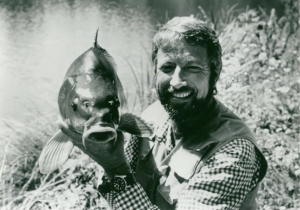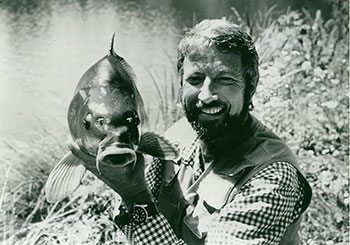
Recreational fishing, a pastime cherished by millions today, has deep roots in the United Kingdom, tracing back centuries. This article explores the rich history of recreational fishing in the UK, highlighting how it has evolved from a necessary survival skill to a beloved leisure activity.
Early Beginnings
The origins of recreational fishing in the UK are as old as the history of the islands themselves. Initially, fishing was primarily a means of survival, a way to gather food from the abundant rivers and seas. However, as far back as the 15th century, we begin to see evidence of fishing for pleasure. The Treatyse of Fysshynge wyth an Angle, published in 1496, is one of the earliest known works dedicated to the art of fishing, suggesting that by the late Middle Ages, fishing was already being enjoyed as a recreational activity.
The Influence of the Industrial Revolution
The Industrial Revolution in the 18th and 19th centuries marked a significant turning point for recreational fishing in the UK. With rapid urbanisation and the growth of the middle class, more people began seeking leisure activities as a respite from work life. Fishing emerged as a popular pastime, offering a peaceful escape to nature.
The Emergence of Modern Angling Clubs
The 19th century saw the formation of numerous angling clubs and societies across the UK. These organisations not only provided a community for like-minded anglers but also played a crucial role in the conservation of fish and habitats. One notable example is the formation of the Salmon and Trout Association in 1903, which today continues as the Salmon & Trout Conservation UK.
Technological Advancements
Advancements in technology and transportation during the 19th and 20th centuries significantly impacted recreational fishing. The development of the railway network made previously inaccessible fishing spots reachable for the general population. Meanwhile, advancements in rod and reel design, including the introduction of materials like bamboo and later fiberglass and carbon fiber, revolutionised the fishing experience.
World Wars and Fishing
The two World Wars had a contrasting impact on recreational fishing. While World War I saw a decline in leisure fishing due to resource constraints and manpower shortages, World War II brought about a resurgence. Fishing became not only a source of relaxation during tumultuous times but also a means to supplement food rations.
Post-War Era and the Rise of Modern Recreational Fishing
The post-war era marked the beginning of modern recreational fishing as we know it today. This period saw significant growth in the sport, with improvements in gear, increased media coverage, and the rise of competitive fishing events. The advent of television and fishing shows in the late 20th century further popularised the sport, making it accessible to a broader audience. Huge advancements in modern fishing tackle also allowed access to the sport for the masses.
Environmental Awareness and Conservation
The late 20th and early 21st centuries have seen a growing emphasis on environmental conservation in recreational fishing. Anglers and organisations in the UK are increasingly involved in efforts to protect aquatic ecosystems, practice catch and release, and maintain sustainable fish populations.
The Present and Future
Today, recreational fishing in the UK is a vibrant part of the cultural fabric. With a diverse range of freshwater and saltwater fishing opportunities, it continues to attract enthusiasts of all ages. The sport is not just about the catch but also about the connection with nature, conservation, and the joy of the outdoor experience .
Conclusion
The history of recreational fishing in the UK is a fascinating journey from necessity to a beloved hobby. It reflects broader societal changes, technological advancements, and a growing consciousness about environmental stewardship. As we look to the future, recreational fishing in the UK remains a testament to the enduring appeal of this timeless pastime.






